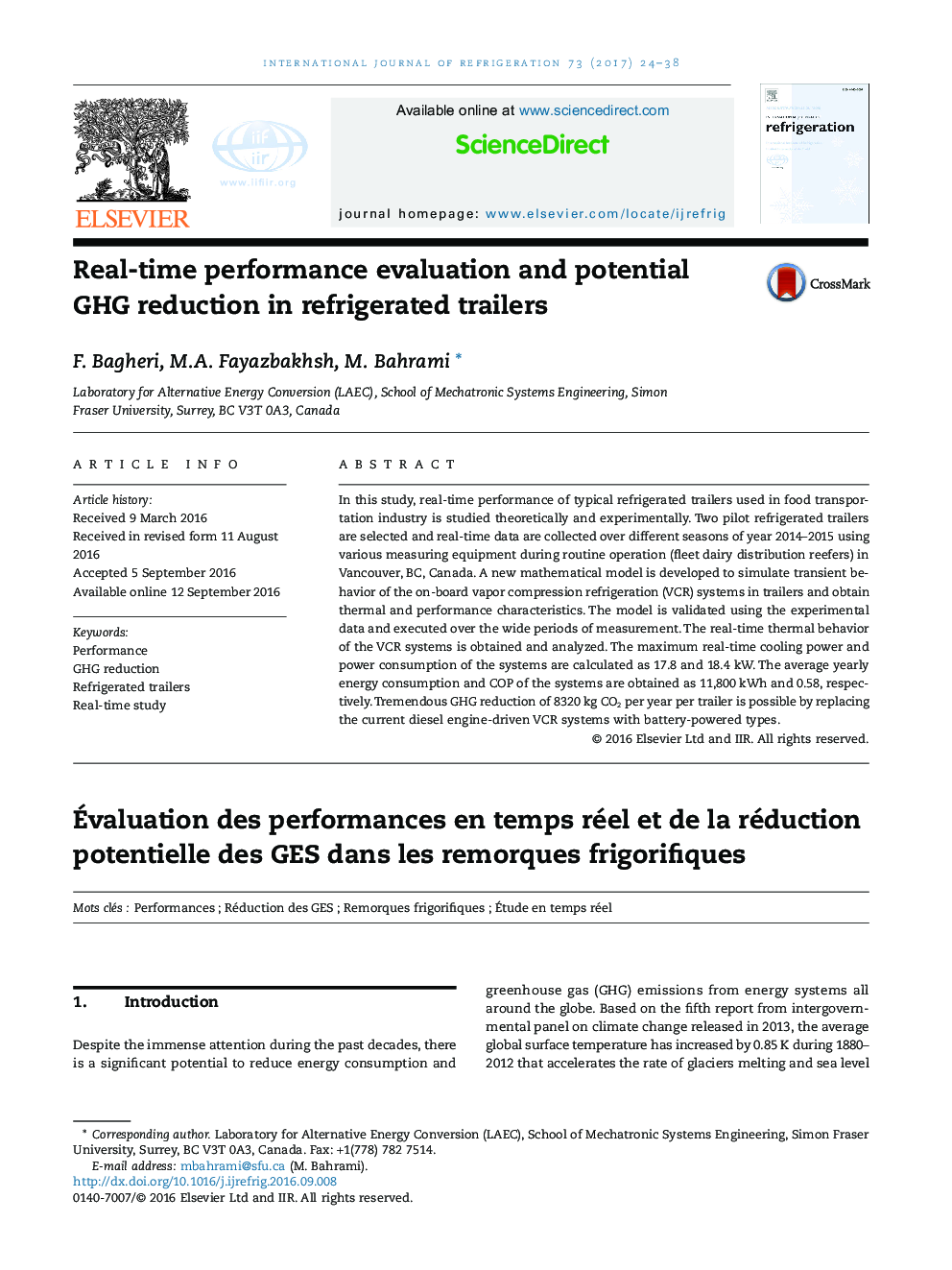| Article ID | Journal | Published Year | Pages | File Type |
|---|---|---|---|---|
| 5017203 | International Journal of Refrigeration | 2017 | 15 Pages |
â¢Real-time field data are collected from refrigerated trailers during different seasons of 2 consecutive years.â¢A mathematical model is developed and verified using the collected real-time field data.â¢Duty cycle of the refrigerated trailers used in food transportation is established.â¢Thermal and performance characteristics of refrigeration system in trailers are investigated.â¢A comprehensive solution for GHG reduction is discussed.
In this study, real-time performance of typical refrigerated trailers used in food transportation industry is studied theoretically and experimentally. Two pilot refrigerated trailers are selected and real-time data are collected over different seasons of year 2014-2015 using various measuring equipment during routine operation (fleet dairy distribution reefers) in Vancouver, BC, Canada. A new mathematical model is developed to simulate transient behavior of the on-board vapor compression refrigeration (VCR) systems in trailers and obtain thermal and performance characteristics. The model is validated using the experimental data and executed over the wide periods of measurement. The real-time thermal behavior of the VCR systems is obtained and analyzed. The maximum real-time cooling power and power consumption of the systems are calculated as 17.8 and 18.4 kW. The average yearly energy consumption and COP of the systems are obtained as 11,800âkWh and 0.58, respectively. Tremendous GHG reduction of 8320âkg CO2 per year per trailer is possible by replacing the current diesel engine-driven VCR systems with battery-powered types.
